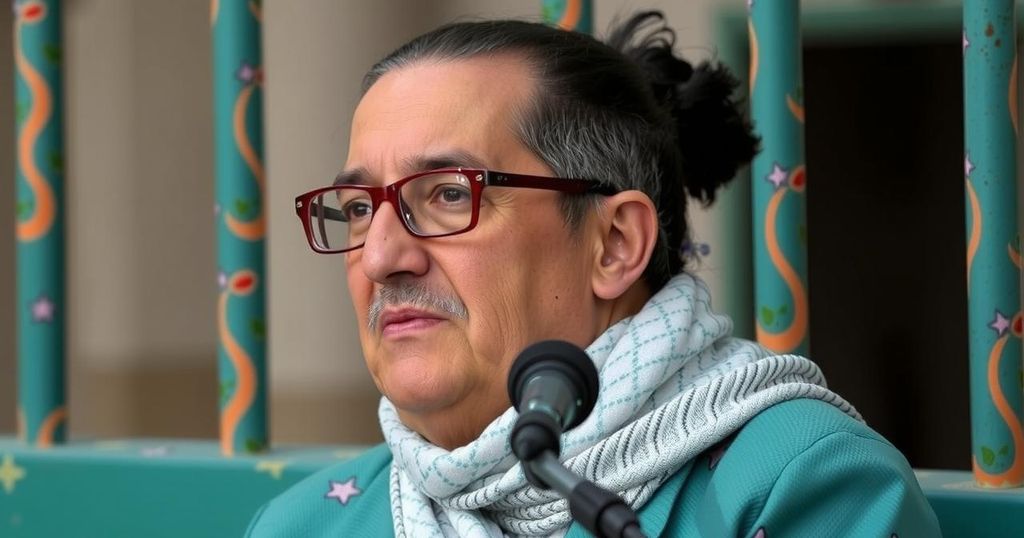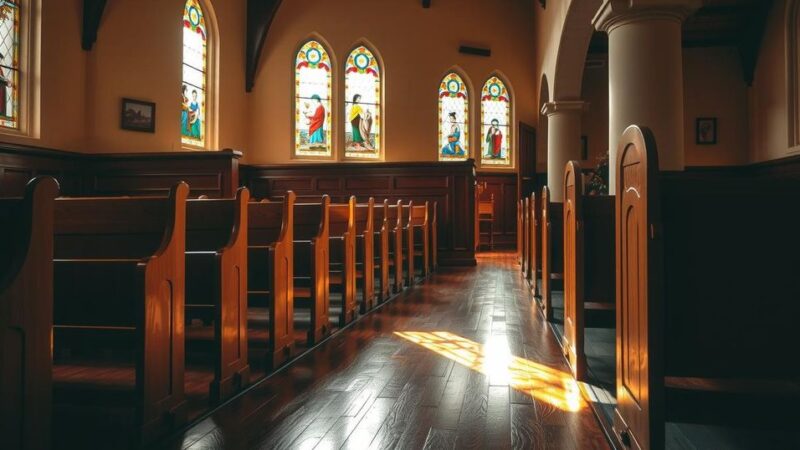A Moroccan activist, Said Ait Mahdi, was sentenced to three months in prison for defamation after criticizing the government’s response to a major earthquake in 2023. He was ordered to pay 10,000 dirhams ($1,000) in damages and plans to appeal the verdict. The case reflects ongoing tensions between authorities and activists advocating for disaster relief and accountability.
In Morocco, activist Said Ait Mahdi has been sentenced to three months in prison for defamation due to his public criticism of the government’s response to the devastating September 2023 earthquake in El Haouz province. Ait Mahdi, who leads a group advocating for victims of the earthquake, was found guilty alongside three others who faced lesser charges for insulting public officials. The verdict comes after local officials claimed Ait Mahdi’s social media posts were offensive, leading to legal action against him.
Ait Mahdi’s detention began on December 23, prior to his trial, and the Court of First Instance of Marrakech now mandates he pay a fine of 10,000 dirhams ($1,000) to each affected party. Despite the ruling, Ait Mahdi’s legal representation plans to appeal the decision. His organization has been a vocal advocate for more efficient reconstruction efforts following the natural disaster, which claimed nearly 3,000 lives and left countless others displaced.
After the earthquake, the Moroccan government revealed plans for a significant reconstruction initiative, allocating $11 billion over five years for recovery efforts across six impacted provinces. Authorities report that over 57,000 reconstruction permits have been issued and approximately 35,000 homes are either completed or in rebuilding stages, yet criticism from activists persists regarding the pace and effectiveness of these efforts.
In September 2023, a powerful earthquake measuring 6.8 struck El Haouz province in Morocco, resulting in substantial destruction and a tragic loss of life. The region was significantly affected, enduring approximately 3,000 fatalities and 5,600 injuries. Thousands of homes were destroyed, leading to many individuals and families living in tents as they awaited assistance. In response, the Moroccan government has made attempts to provide reparative measures, including a large financial commitment for reconstruction. However, local activists like Said Ait Mahdi have raised concerns about the government’s effectiveness and transparency in its disaster response, which has led to debate and, in Ait Mahdi’s case, legal repercussions as he openly voiced criticism.
The conviction of Said Ait Mahdi underscores the tensions between government officials and activists advocating for accountability and transparency in disaster responses. While Moroccan authorities have initiated significant reconstruction efforts, criticisms related to the speed and adequacy of these efforts remain prevalent. Ait Mahdi’s case raises fundamental questions about freedom of expression in contexts of governmental criticism, particularly concerning responses to national tragedies such as the earthquake in El Haouz province.
Original Source: www.arabnews.com






